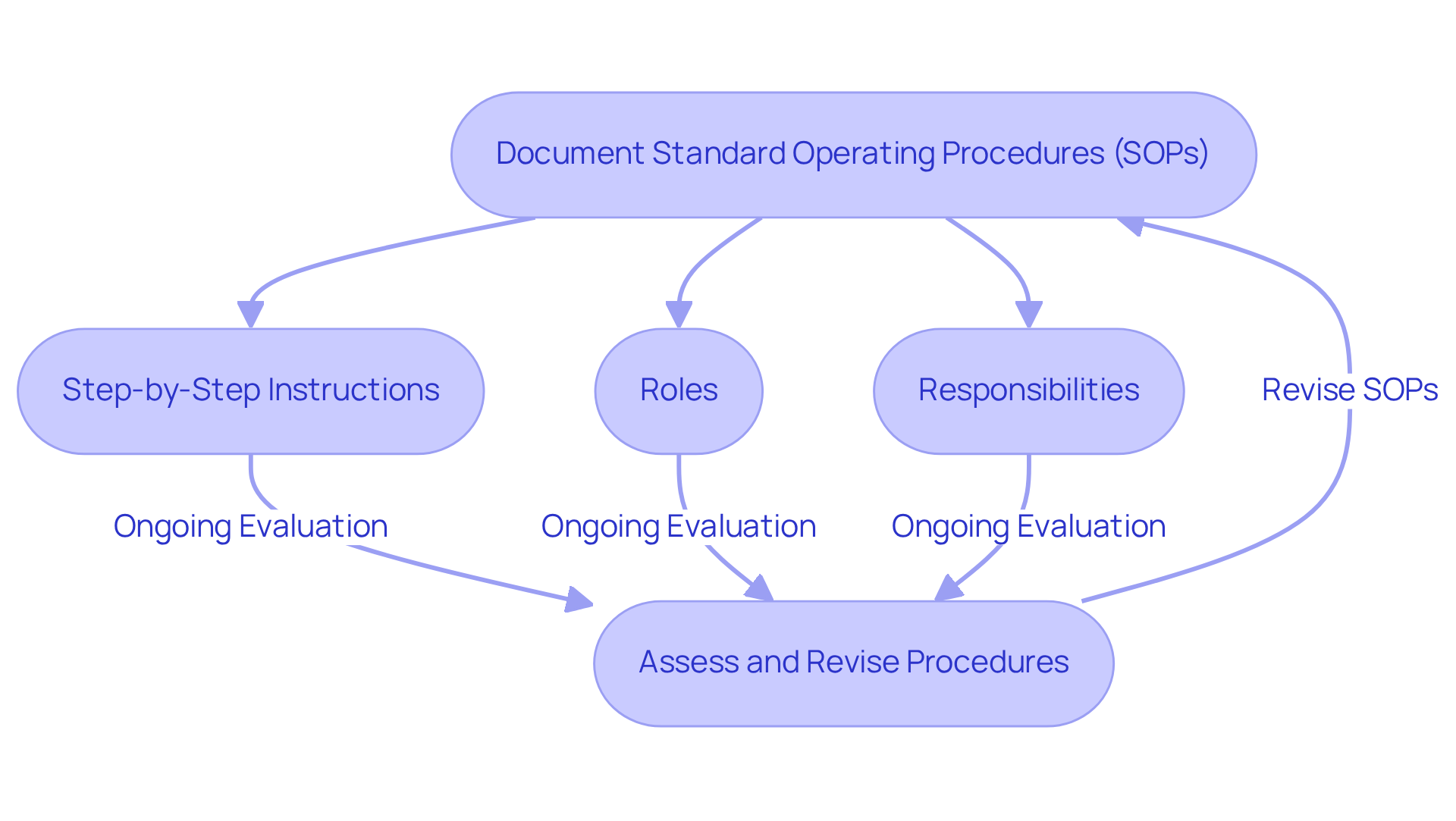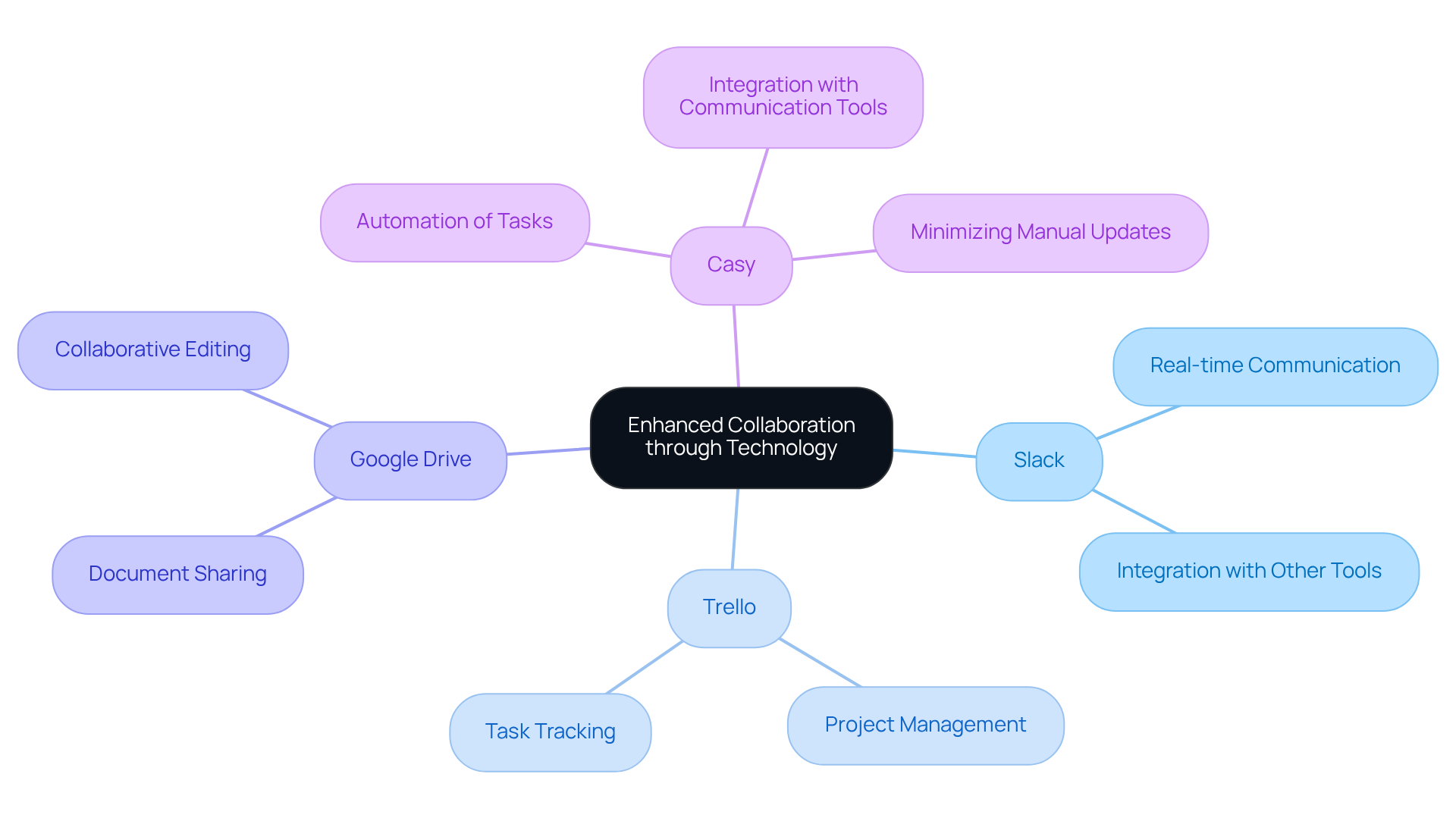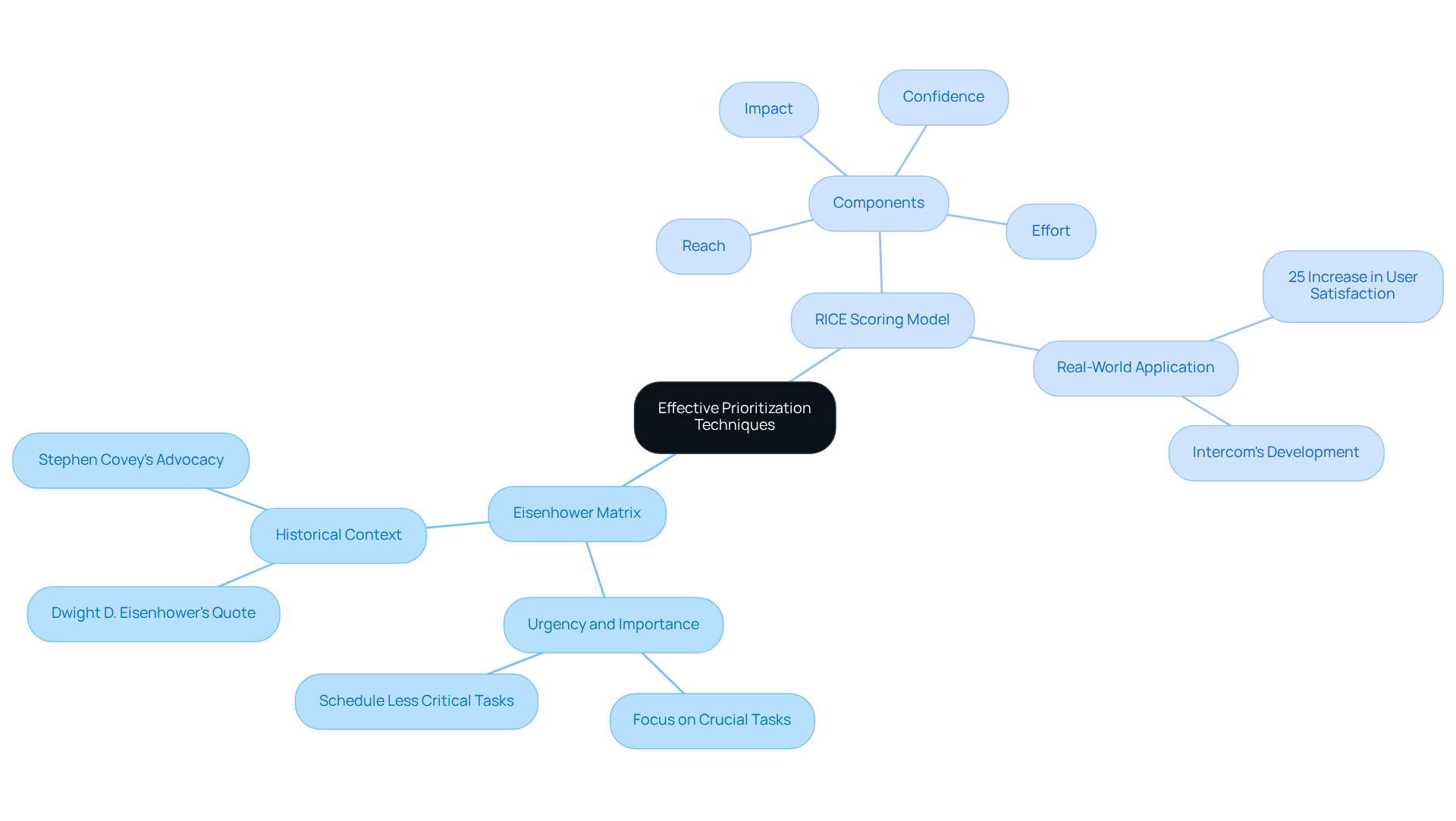Overview
The article delineates three pivotal work management strategies for startups:
- Establishing clear work management processes
- Leveraging technology for enhanced collaboration
- Implementing effective prioritization techniques
These strategies are substantiated by compelling examples and statistics that illustrate their profound impact on productivity and operational efficiency. For instance, documented procedures have led to a remarkable 30% reduction in training duration, while collaboration tools have driven a 40% increase in project completion rates. Such data not only underscores the value of these strategies but also highlights the potential for startups to optimize their operations and achieve greater success.
Introduction
Navigating the fast-paced world of startups presents a distinct array of challenges, especially in the realm of effective work management. Establishing clear processes, leveraging technology, and implementing prioritization techniques are not merely best practices; they are essential strategies that can significantly boost productivity and operational efficiency. Yet, many startups grapple with these concepts, resulting in confusion and lost opportunities.
How can emerging companies transform their approach to work management and ensure they thrive, rather than merely survive, in a competitive landscape?
Establish Clear Work Management Processes
To establish effective work management, startups must begin by documenting standard operating procedures (SOPs) for key tasks. This documentation should encompass:
- Step-by-step instructions
- Roles
- Responsibilities for each team member involved
It is essential to consistently assess and revise these procedures to adapt to evolving requirements and ensure they remain relevant. Additionally, employing visual aids such as flowcharts can help team members quickly grasp complex workflows.
For instance, a new tech company implemented a streamlined onboarding system for new employees, resulting in a 30% reduction in training duration and a significant boost in employee satisfaction ratings. By dedicating time to create and refine these processes, startups can cultivate a culture of clarity and accountability in their work management, which ultimately drives enhanced productivity and reduces operational overhead.

Leverage Technology for Enhanced Collaboration
Startups must strategically adopt collaboration tools that enhance work management tailored to their unique needs. Consider platforms like:
- Slack for real-time communication
- Trello for project management
- Google Drive for document sharing
These tools not only facilitate seamless communication but also support effective work management by enabling effortless tracking of project progress. For example, a marketing company that integrated Slack with Trello experienced a remarkable 40% increase in project completion rates. Moreover, research indicates that effective collaboration can boost productivity by 30%, with 73% of employees performing better when working together.
Integrating these tools with automated work management systems like Casy can significantly enhance productivity. By minimizing manual updates, Casy ensures that tasks are automatically created and assigned based on team discussions. Its capability to capture key information from conversations further amplifies its effectiveness alongside tools such as Slack and Trello. However, it is crucial for new businesses to recognize that 59% of workers find online collaboration tools challenging, which could present potential pitfalls.
By effectively leveraging technology, startups can foster a more connected and efficient work management environment. This not only enhances operational effectiveness but also improves employee morale. Are you ready to transform your startup's collaboration strategy and reap the benefits of increased productivity?

Implement Effective Prioritization Techniques
Startups can significantly enhance their productivity by employing prioritization methods like the Eisenhower Matrix, which categorizes activities based on urgency and importance. This strategy enables teams to focus on what truly matters, ensuring that crucial tasks receive the attention they deserve. As Stephen Covey wisely stated, "The key is not to prioritize what’s on your schedule, but to schedule your priorities."
Another powerful method is the RICE scoring model, created by Intercom, which assesses tasks according to Reach, Impact, Confidence, and Effort. For example, a software development company that implemented the RICE model for feature prioritization saw a remarkable 25% increase in user satisfaction, thanks to the timely launch of impactful features.
It's noteworthy that only about 3% of adults have clear, written goals, highlighting the critical role prioritization techniques play in achieving meaningful outcomes. Regularly evaluating and adjusting priorities based on team feedback and project developments is essential for aligning with strategic objectives.
Moreover, startups must be cautious of misapplying prioritization methods, as this can lead to confusion and inefficiency. By cultivating a prioritization culture, as Jim Collins advocates, startups can empower their teams to focus on initiatives that yield significant results.

Conclusion
Establishing effective work management strategies is crucial for startups aiming to thrive in a competitive landscape. By implementing clear processes, leveraging technology for collaboration, and employing prioritization techniques, startups can create an environment that promotes productivity and accountability. These strategies not only streamline operations but also empower teams to focus on what truly matters.
Key insights from the article highlight the importance of:
- Documenting standard operating procedures to cultivate clarity
- Utilizing collaboration tools to enhance communication
- Applying prioritization methods like the Eisenhower Matrix and RICE scoring model to ensure that critical tasks are addressed
Each of these strategies contributes to a more efficient workflow and a more engaged workforce, ultimately driving the success of the startup.
As startups navigate the complexities of growth, embracing these work management strategies becomes essential. By prioritizing clear processes, adopting the right technology, and fostering a culture of prioritization, startups can not only improve their operational effectiveness but also position themselves for long-term success. The journey toward optimized work management is ongoing; thus, taking actionable steps today can lead to significant benefits tomorrow.
Frequently Asked Questions
What are the first steps startups should take to establish effective work management?
Startups should begin by documenting standard operating procedures (SOPs) for key tasks, which should include step-by-step instructions, roles, and responsibilities for each team member involved.
Why is it important to assess and revise standard operating procedures?
It is essential to consistently assess and revise these procedures to adapt to evolving requirements and ensure they remain relevant.
How can visual aids assist in work management?
Employing visual aids such as flowcharts can help team members quickly grasp complex workflows.
Can you provide an example of successful work management implementation?
A new tech company implemented a streamlined onboarding system for new employees, resulting in a 30% reduction in training duration and a significant boost in employee satisfaction ratings.
What benefits do clear work management processes bring to startups?
Clear work management processes cultivate a culture of clarity and accountability, which ultimately drives enhanced productivity and reduces operational overhead.




